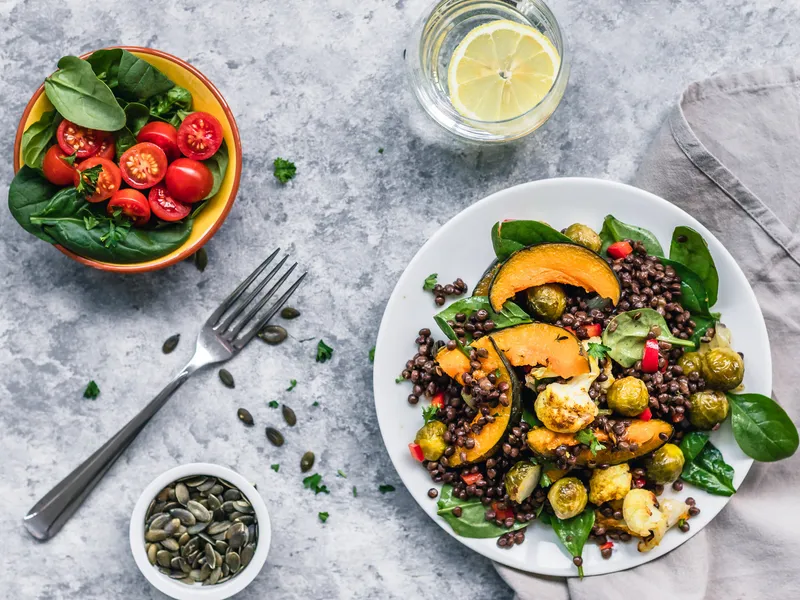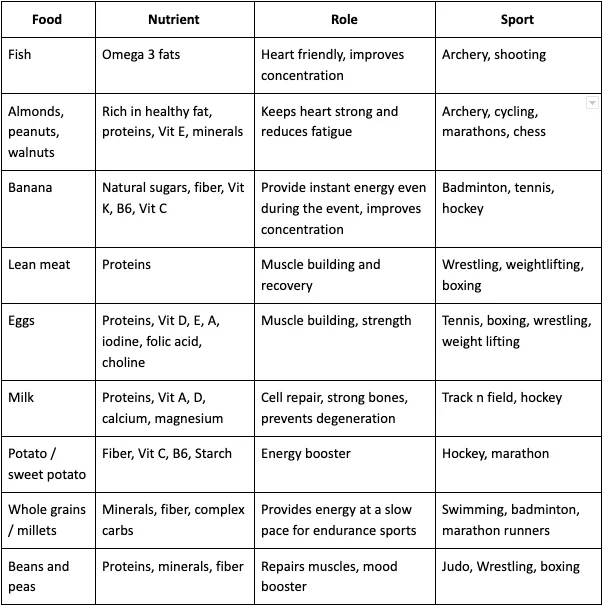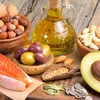The correct nutrition is key to ensuring an athlete performs optimally
Nutrition expert Dr Meghana Pasi gives a detailed insight into the best diet to follow to build endurance and stay healthy
Chak De India!! We have been hearing this for the past few weeks where every Indian was cheering for the Indian athletes at Tokyo Olympics 2020.
Sports has the power to change lives. The drive, the passion and sheer never give up attitude, against all odds of our Indian women athletes goes to prove just that. As Hima Das once said “My parents were rice farmers, I couldn’t afford shoes”. And yet she went on to win medals for India.
Or the story of Rani Rampal, the daughter of a cart puller, now the captain of the Indian Hockey team. She could not afford a hockey stick, and yet, with the right nutrition over time and rigorous training, she made us all proud in Tokyo.

Nutrition plays a very important role when an athlete strives for an edge over the competition
ALSO READ

It has been a historic moment for India as our contingent carried 56 women athletes this year at the Tokyo 2020. And there was Women Power everywhere; be it Mirabai Chanu, PV Sindhu, Mary Kom or our women’s hockey team, women have outshone men this time proving their worth even in sports. However, the journey has not been easy with numerous challenges at every step; be it societal pressure, gender inequality, financial crunch, lack of facilities and even poor nutrition.
Along with determination, exercise and rigorous training, nutrition plays a very important role when an athlete strives for an edge over the competition. Proper nutrition:
- enhances athletic performance
- decreases fatigue
- decreases risk of disease and injury
- enables to optimize training and
- helps recover faster
An athlete’s diet is not much different than that of any person trying to stay healthy; however, they may need to eat more or less of certain foods, depending upon their:
- age, gender, height, and weight
- type of sport, amount of training, and amount of time spent in the training
To optimise performance, athletes need to learn what to eat and how much to eat before, during and after an event. Here again BALANCING is the KEY.
Balanced nutrition, including macronutrients such as carbohydrates, proteins, fats, and micronutrients such as vitamins and minerals along with fluids in appropriate amounts is essential. The macronutrients provide fuel for physical activity and micronutrients provide a defence mechanism to the body.
Macronutrients
Carbohydrates (carbs) are the body's biggest source of energy/calories. Glucose from carbs is stored as glycogen in our muscles. During exercise, glycogen gets broken down to give energy. On restricting carbs, one’s ability to exercise gets compromised due to a lack of glycogen stores. This can result in loss of muscle tissue, as the body will start to break down muscles (proteins) to meet its energy needs. 55-60 percent calories should come from carbs. However, an athlete needs to increase the amount (65-70 percent) when one undergoes a strenuous exercise regime.
- Simple carbs (fruits and milk) are easier for our body to break down. They provide quick bursts of energy.
- Complex carbs (whole-grains, millets, potatoes, brown rice, oats and beans) take longer to break down. They are a better source of energy over time.
Proteins do not provide a lot of fuel for energy but are required to maintain muscle strength. Including too much protein can be harmful as it can put a strain on the liver and kidneys. Around 15 percent calories should come from protein sources. Go for high-quality protein such as lean meats, fish, poultry, eggs, milk, low fat cheese, curds.
- The average person needs 0.8gm/kg body weight a day. Sports which involve endurance and strength like weightlifting, would need around 1.2-1.7gm/kg body weight
- Milk is a wonderful food for an athlete. It has a good balance of proteins and carbs. Milk also has casein and whey protein. Whey protein is absorbed quickly, which helps in faster recovery immediately after an event. Casein is digested slowly, helping in long-term recovery of muscle after a tiring event.
Fat also serves as a fuel source. However, replacing carbs with fats can make the body work harder to burn fat for energy.
- Choose healthy fats like olive oil, nuts, seeds and fish.
- For most athletes 25-30 percent calories coming from fats is enough. However, during marathons, the body turns fat into energy when carbohydrate sources run low, hence a high carb diet is recommended.
- Avoid fatty foods on the day of an event since they can upset your stomach.

Drinking water is crucial to staying hydrated to ensure optimum performance
Water / fluids if not taken frequently and in optimal quantities can lead to dehydration leading to lower performance.
- Drink fluids before and during the event
- Endurance athletes such as marathon runners or long-distance cyclists should drink around 300ml of fluid every 10 or 15 minutes during an event.
- Water is a suitable drink, but sports drinks may be required during endurance events or warm climates to replenish lost electrolytes.
Some Important Tips to reach your highest potential:
- Power Breakfast: Athletes need a high protein with complex carbs and low-fat breakfast e.g. cereals, milk, eggs, beans, sprouts, boiled chana etc.
- Eat small, frequent meals: Athletes need six-eight meals a day to fuel their body.
- Eat to repair your body: After a tiring event go for a nutrient-packed meal like a banana milkshake, soy milk, peanut butter, etc.
- Pre-event meal: A high-carbohydrate meal three to four hours before exercise helps improve performance e.g. rajma rice with veggies and curd, grilled chicken with pasta, hummus with pita bread and buttermilk, and mixed vegetable khichdi with curd.
One can also have a small carb meal one-two hours before the event. Go for fresh fruits, curd rice, low fat milk, milk and roti, nuts, granola bars etc. Avoid a high protein or fat meal which can increase the risk of gastrointestinal discomfort during the event.
- During the event: Consume regular fluid during a long event to avoid dehydration. Have more simple carbs like fruits, chikki, nimbupani to provide instant energy.
- After the event: Proper nutrition post event is equally important. Have proteins to repair worn out muscles and speed up recovery. Carbs and fluids should be consumed within one to two hours to replace glycogen.
The below table gives a list of few foods that would help an athlete perform better for her particular sport along with having a balanced diet.

Eat healthy, Stay Healthy. Be a Champion!!
Edited by Diya Koshy George











